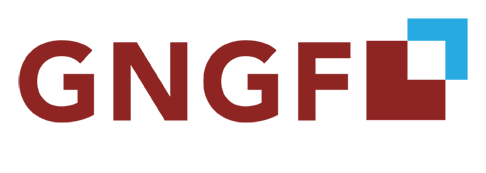Good, Better, Best?
“We’re the best attorneys in the state.”
“We are the region’s leading experts in employment law.”
Sounds nice, doesn’t it? In fact, who wouldn’t want to hire you after reading those affirmations? You may think you’re the best attorney in the state, you may have an incredibly high success rate, people may call you a leading expert, but when it comes down to using this type of language in a pay-per-click (PPC) advertising campaign with Google, just don’t do it.
In ABA’s Model Rules of Professional Conduct, Rule 7.1 states:
“A lawyer shall not make a false or misleading communication about the lawyer or the lawyer’s services. A communication is false or misleading if it contains a material misrepresentation of fact or law, or omits a fact necessary to make the statement considered as a whole not materially misleading.”
Within Rule 7.1 it comes down to the words “false” or “misleading” and that all those phrases a firm may want to use in an advertisement, can’t be proven factually. Additionally, Rule 7.4 states “A lawyer shall not state or imply that a lawyer is certified as a specialist in a particular field of law…” Meaning, unless you have been certified as a specialist by an organization approved by an appropriate state authority or accredited by the ABA, don’t claim to be a specialist or an expert in your field.
In the end, be smart and careful about how you market yourself and your firm in PPC ad text, as well as in your domain name, on your web pages and any other advertising your firm might use. Stay away from attributes, promises, and statements that aren’t measurable. Rather than saying you’re the best, stick to doing the best you can for your firm and your clients, the consequences aren’t worth it.
Dynamic Keyword Insertion
Before we get into the ethics of dynamic keyword insertion, let’s take a step back and go over exactly what Dynamic Keyword Insertion (DKI) is with Google Adwords. Dynamic Keyword Insertion is a feature that allows you to insert a keyword into your ad copy based on a searcher’s query.
For example, if you’re a personal injury attorney, keywords within your Ad Group could be “car accident,” “ malpractice,” “slip and fall,” and “product liability.” You can create a PPC advertisement with the heading “Personal Injury Attorney” and “Personal Injury” as your default text. So, anytime someone searches “Best Car Accident Attorney” your dynamic keyword ad will insert “car accident” in place of “personal injury.” The same goes for a “Slip and Fall Attorney,” “Malpractice Attorney” and all the other keywords within your Ad Group. If they search outside your Ad Group’s keywords, “Personal Injury Attorney” will always be the default text.
DKI can be a strategic way to create a lot of specified PPC ads, without putting in a lot of time. But, if not utilized correctly, dynamic keyword insertion can be the cause of an ethical headache, one that you didn’t even realize you created.
For example, if one of the keywords in your AdGroup is not properly controlled, someone could search for a competitor’s name and it would be inserted into your ad. Let’s take the term “law firm Cincinnati,” where the default text is “Cincinnati” and the keyword is “law firm.” If “law firm” isn’t properly set, then someone could search a competing firm name, we’ll use “Achor Law Firm,” and that would be populated, creating the ad “Achor Law Firm Cincinnati.” Therefore, you would end up both advertising under a competitor’s name and possibly using a trademarked company name, without their permission. By having broad match keywords in a dynamic keyword insertion campaign, you could find yourself in some legal hot water.
Wait…whose ad is that?
A prospective client decides to hop on Google and learn more about your firm that we’ll call “A&A Law.” They type in “A&A Law,” but one of the first ads they see isn’t from A&A, it’s an ad saying “A&A Law? Try Homer & Associates. Our lawyers can help” and suddenly you’ve lost your client lead to Homer & Associates.
It’s called competitive keyword advertising and it’s the process of a company bidding on a competitor’s name in their own PPC campaign. So, when a lead searches for a law firm, a competing law firm’s ad shows up in the results.
There’s been a lot of back and forth across industries on whether or not this practice is legal. In the legal advertising industry, it’s very unclear, and state bar associations have varying rules regarding competitive keyword advertising. Thankfully, we’re not here to debate its legality, we’ll leave that to the pros (you guys) but we do have an opinion on the ethics of this practice.
Depending on how the ad is worded, it has the potential to mislead the prospective client. When someone searches “A&A Law Firm” and suddenly end up on “Homer & Associates” website, they might not even realize how they got there and are fooled by the advertisement, essentially misleading the searcher.
Additionally, competitive keyword advertising is a technique used to steal your competitor’s customers. We think this is pretty unethical and has the potential to make your own firm look bad. Instead of utilizing your PPC campaigns to steal your competitor’s customers, you should be using it to tout your successes, to pitch what is unique about your firm and earn customers in your own right, not someone else’s.
Beyond this, it’s also against ABA’s Model Rules of Professional Conduct Rule 7.3 that warns against any solicitation significantly motivated by a monetary goal. We would argue if a firm has to resort to tricking individuals to their website with misleading search engine tactics, it’s likely for monetary gain. Again, stick to earning clients in your own right and not piggybacking off your competitor.
Last (but, not least) don’t forget…
That you are responsible. When it comes to best practices for PPC advertising campaigns, there’s a lot to remember and follow. If a marketing company is handling your advertising and website, it is imperative they are aware of and keep up with the many rules unique to the legal advertising world. If the marketing company runs an ad claiming you’re the best law firm in Cincinnati, they won’t be held responsible, your law firm will.
Not sure where to start with Google Ads?
Our legal marketing experts have put together our 7 best tips for creating the best legal PPC campaigns.


Leave a Reply